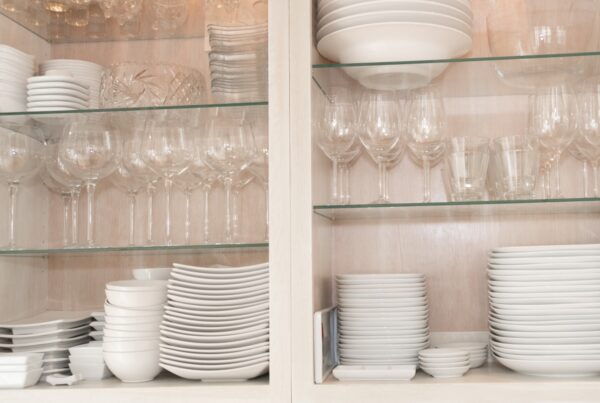
Clutter Corrections is a resource that women can lean on to help reduce the stress, anxiety and mental burden of invisible labor.
Have you ever felt like you’re constantly juggling several invisible balls with some threatening to slip through your fingers at any moment? If you’re a woman, there’s a good chance you’re very familiar with this sensation. This unseen burden, often referred to as “invisible labor,” is the mental and emotional load of managing countless household tasks, big and small, that fall disproportionately on women’s shoulders.
From remembering grocery lists and school schedules to coordinating appointments and organizing activities, the mental space occupied by these invisible tasks can be immense. They weigh heavily on our minds and create a “constant on.” This unseen burden, often referred to as “invisible labor,” is the mental and emotional load of managing countless household tasks, big and small, that fall disproportionately on women’s shoulders. undercurrent of stress and anxiety that can drain our energy and leave us feeling downright tired and overwhelmed.
Research suggests that invisible labor takes a significant toll on women’s mental and physical health. Studies have shown that women who take on more household chores and childcare responsibilities experience higher levels of stress, anxiety, and depression compared to men and women who share these responsibilities more equally. This chronic stress can also lead to negative physical health consequences such as insomnia, fatigue, and weakened immune systems.
While the physical act of decluttering and home organization is well-documented, its impact on our mental well-being goes far beyond simply creating more space. By decluttering our physical environment, we can also declutter our minds and alleviate the mental load associated with invisible labor. We can also free up precious time and energy for ourselves and other pursuits.
4 Ways Decluttering Can Alleviate the Mental Load of Invisible Labor
Decluttering your home isn’t just about getting rid of stuff—it’s about taking back control of your mental space. By reducing the physical clutter around you, you eliminate the constant visual reminders of tasks undone and decisions needing to be made. This creates a calmer, more organized environment that can significantly reduce stress and anxiety.
- Decluttering reduces decision fatigue. Every item in your house represents a decision you’ve made to buy, maintain and store. By getting rid of unnecessary items, you eliminate the constant decision-making burden associated with them.
- Organizing your home frees up mental space. Clutter competes for your attention, both consciously and unconsciously. Decluttering creates a calmer and more organized environment that allows your mind to relax and focus on other things.
- Decluttering your home improves efficiency. When everything has its place, you can reduce wasted time and energy in searching for lost items by knowing exactly where to find what you need.
- Organizing your space and belongings empowers you to say “no.” Having a more organized and manageable environment enables you to say “no” to non-essential tasks and activities. Instead, you’ll be able to say “yes” to practicing the kind of self care that energizes and inspires you to leave your personal mark on the world.
4 More Ways to Reduce the Stress of Invisible Labor
While decluttering your physical space is crucial, it’s also important to declutter your mental space. This involves identifying and letting go of negative thoughts, limiting unnecessary commitments, and setting healthy boundaries. Here are some tips:
- Practice mindfulness. Techniques like meditation and deep breathing can help you become more aware of your thoughts and emotions, allowing you to let go of negativity and focus on the present moment.
- Delegate and ask for help. There’s no need for you to do it all. Don’t be afraid to delegate tasks to others or ask for help when needed. Sharing the load can significantly reduce your mental burden.
- Set realistic (and achievable) expectations. Stop striving for perfection. Aim for progress instead and celebrate your accomplishments along the way.
- Prioritize self-care. Make time for activities that nourish your mind, body, and soul. This could be anything from reading a good book or spending time in nature to indulging in a relaxing hobby or attending a Tidy and Talk.
Embrace Decluttering as a Form of Self-Care
Remember, decluttering is a journey, not a destination. Be patient with yourself, celebrate your progress, and enjoy the sense of freedom and clarity that comes with alleviating both your physical and mental load. By decluttering your home and mind, you’re not just creating more space; you’re creating space for yourself to thrive. Contact home decluttering experts Clutter Corrections to begin your organizing journey today.






